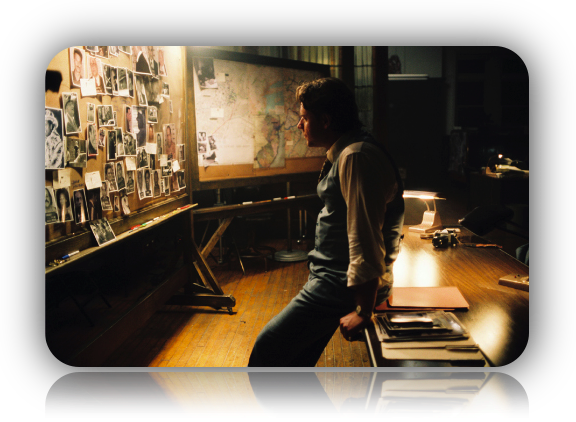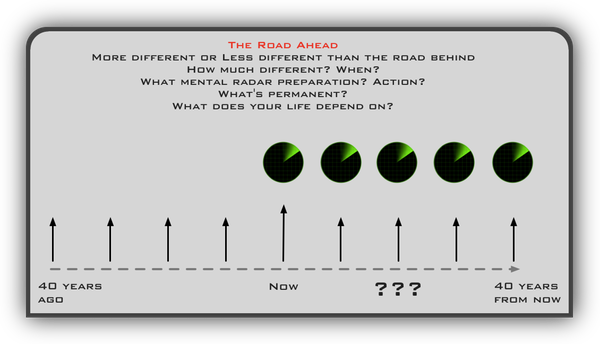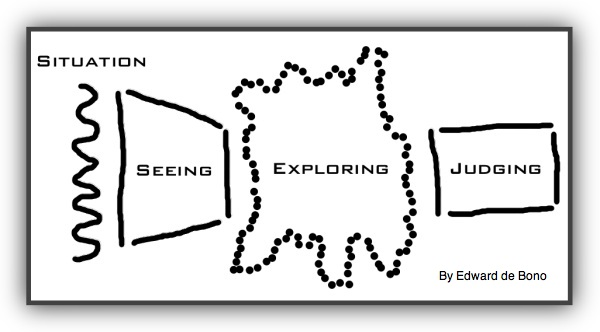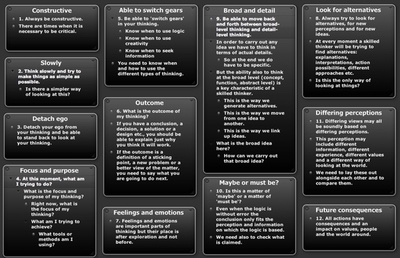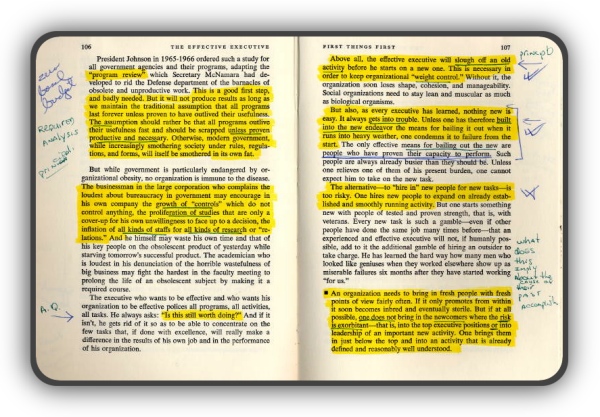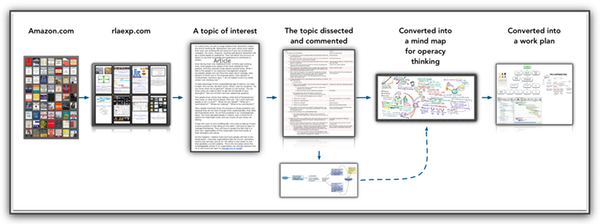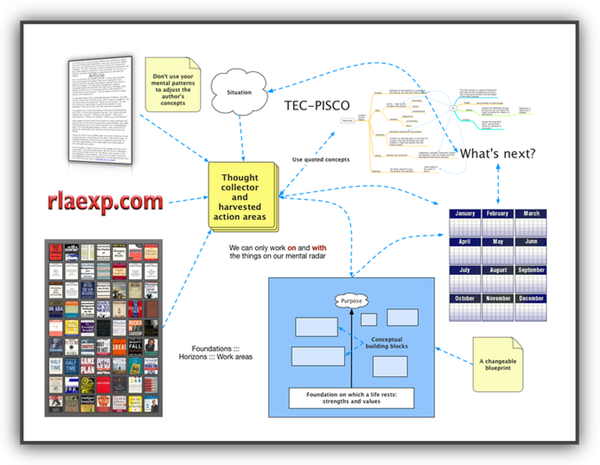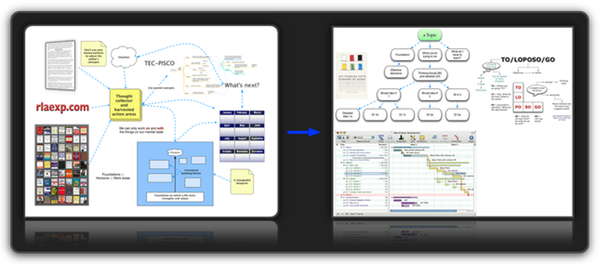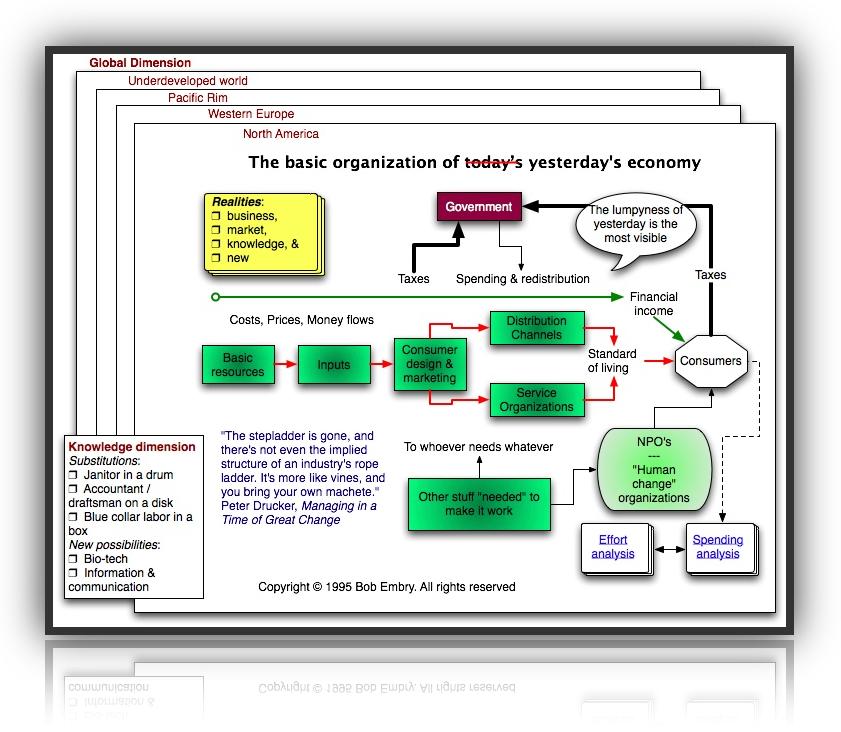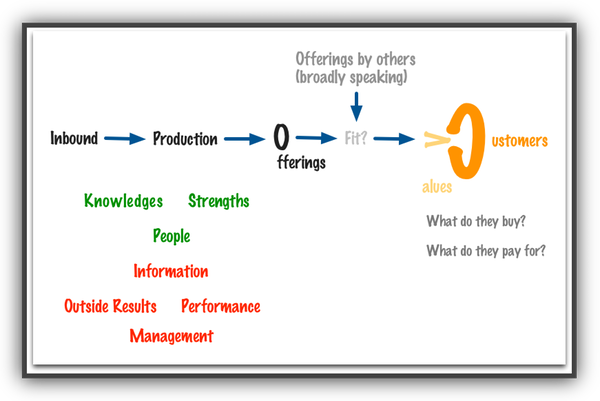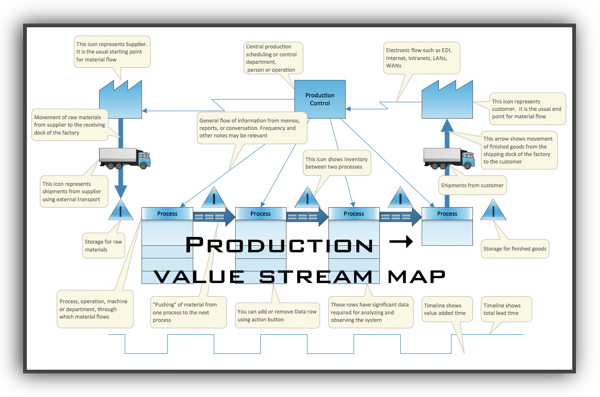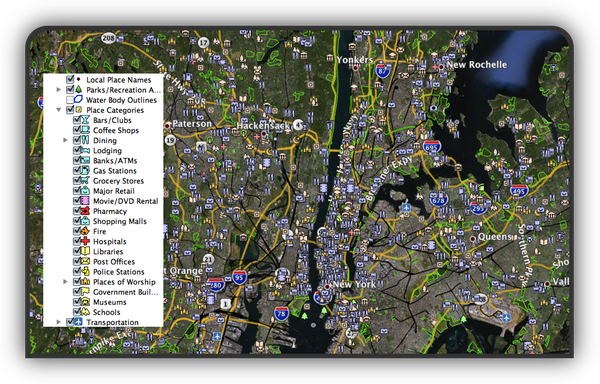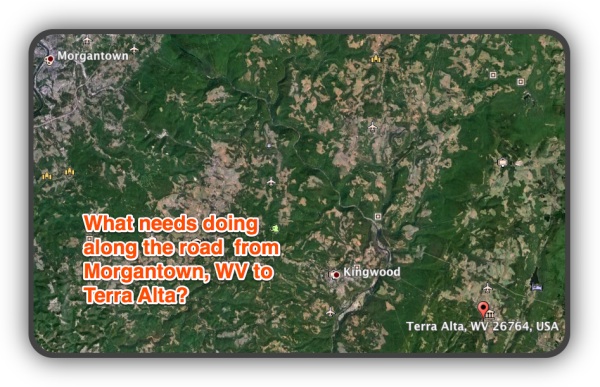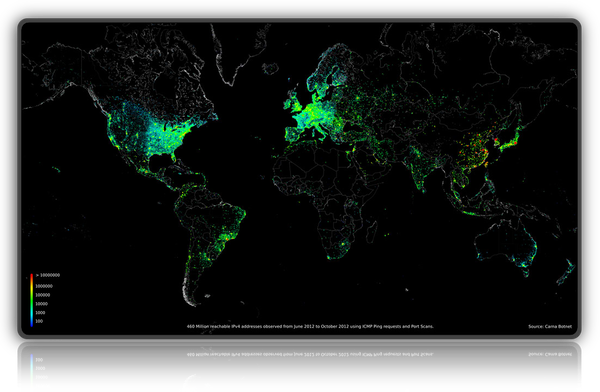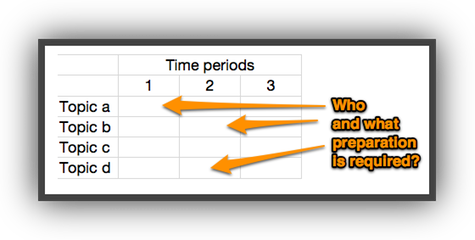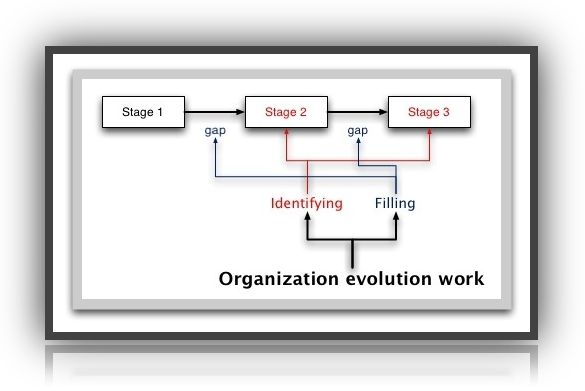A big, big picture
The “memo” that few individuals see
or bother to read (absorb)
because they assume tomorrow
is going to be like yesterday — NOT …
This page provides
a mental exploration landscape
for navigating a world
moving toward unimagined futureS
The world in which we are embedded
This navigation implies time usage thinking
and time investments
Peter Drucker and Edward de Bono are the
major top-of-the-food-chain contributors
Is it really necessary to elaborate on the
advantages of the top-of-the-food-chain idea?
![]()
A basic foundation of awareness for action thinking
aimed toward different tomorrowS ↓
The History of the World in Two Hours — YouTube
If you really pay attention to what you see and hear
during a day, week, month or year,
almost none of the suggested or implied action
is aimed toward a world different from today —
which is really yesterday
because what exists today is of necessity
the product of yesterday and its worldview …
The future is unpredictable … except
It ain’t gonna be like yesterdayS !!!
It ain’t gonna be what you expect !!!
And it ain’t gonna be determined by experts or politicians —
other than in a negative way !!!
You can’t get to the future directly from here !!!
— if you don’t believe me
go back a little ways in time
and test the notion of
linearly extrapolating the past ↓
Is a financially viable smart phone
a linear extrapolation of a
Blackberry™ or black rotary dial phone?
Don’t expect to find answers because there aren’t any …
There are only evolving alternatives and constantly receding horizonS
… and yet we can only work on, with, and toward the things on our mental radar
Our thinking, choices, decisions are determined by what we have seen — the
breadcrumb trail initiated on this page —
a trail through over 500 pages and thousands of topics
depending on the route one takes
What we’ve seen is the foundation of our worldview
The future is between our ears ↓ …
Time-usage decisions are a central challenge …
When you’re doing something
you’re nearly blind
to the unfolding new reality
developing around you …
Proceeding much further, may be somewhat wasted time
unless you whole-heartedly embrace
the real world challenges ↑ ↓ that face you ↑ …
Our mental landscape is populated with signals from the past.
A different tomorrow is going to arrive,
whether you take this challenge seriously or not.
That different tomorrow
is going to have consequences
for many of the things that touch your life.
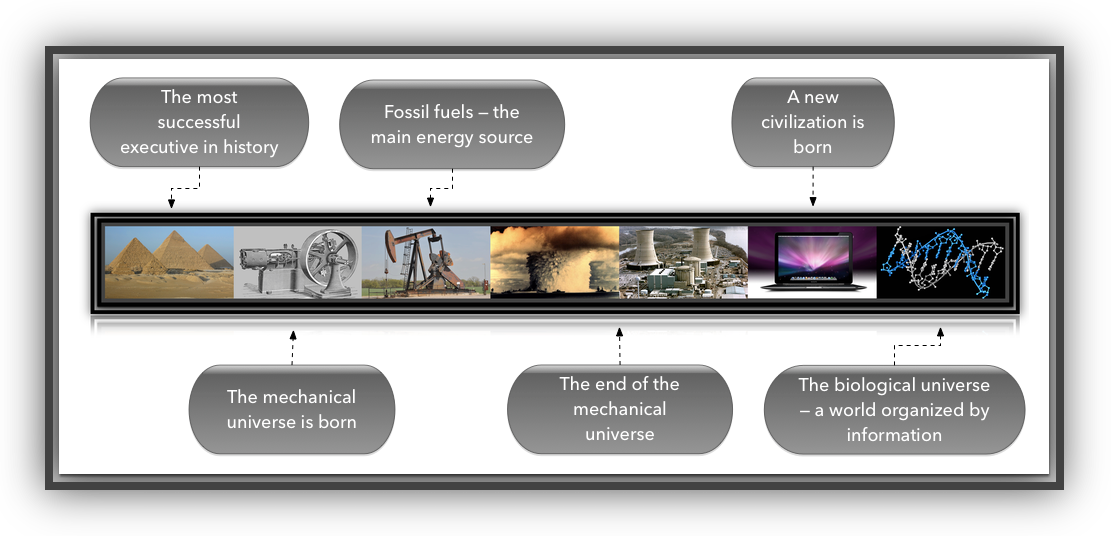
1000 years of European borders change — YouTube
migration, killing, stealing, enslavement, rape, revenge
and other bad stuff
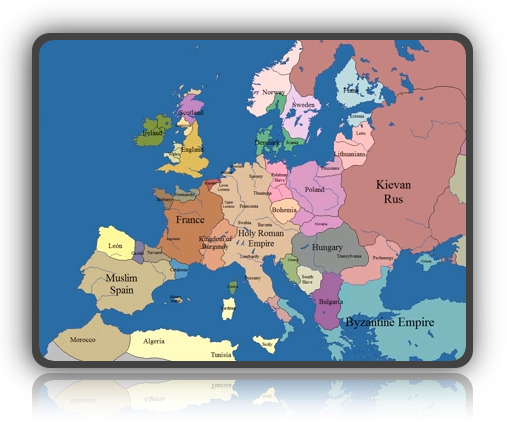
The Prince ↑ by Niccolò Machiavelli — Kindle version available
Navigation implies a map and direction ↓

![]()
Not so long ago the world looked like this ↓
… and at that time, unimagined futureS seemed unthinkable …

… and at that time, unimagined futureS seemed unthinkable …
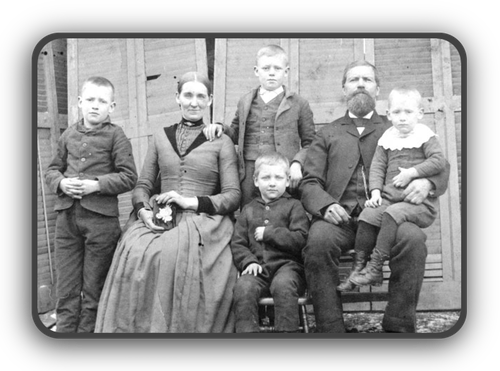
… and at that time, unimagined futureS seemed unthinkable …
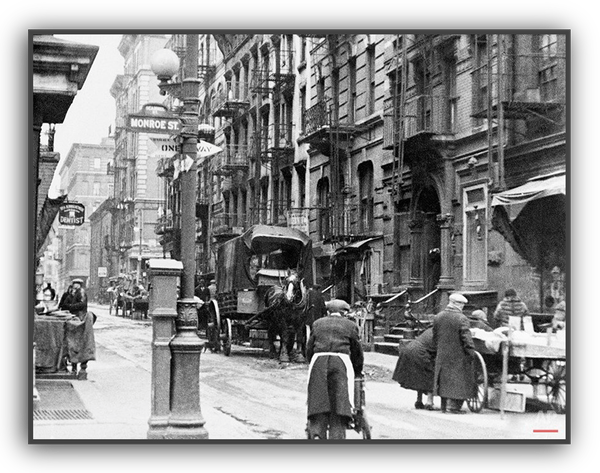
… and at that time, unimagined futureS seemed unthinkable …
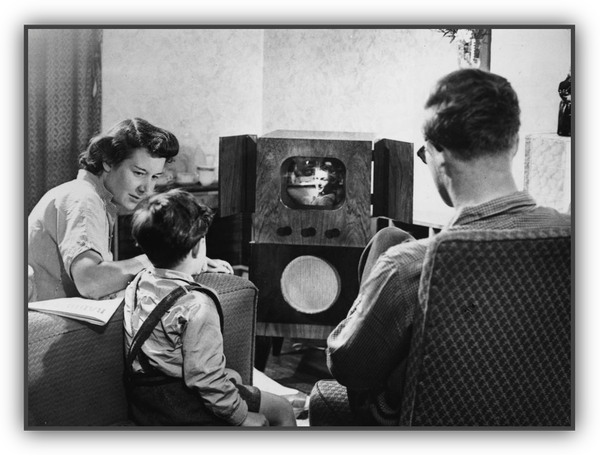
… and at that time, unimagined futureS seemed unthinkable …
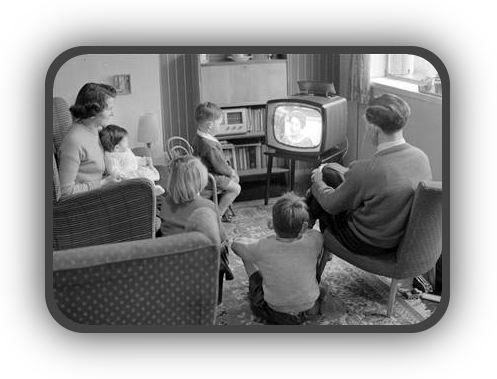
… and at that time, unimagined futureS seemed unthinkable …
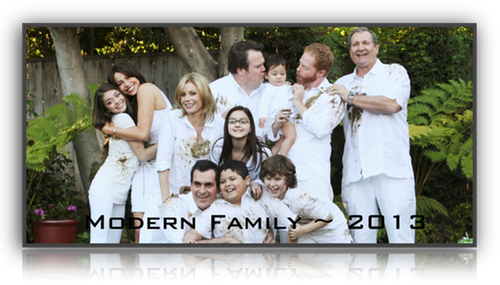
… and at that time, unimagined futureS seemed unthinkable …
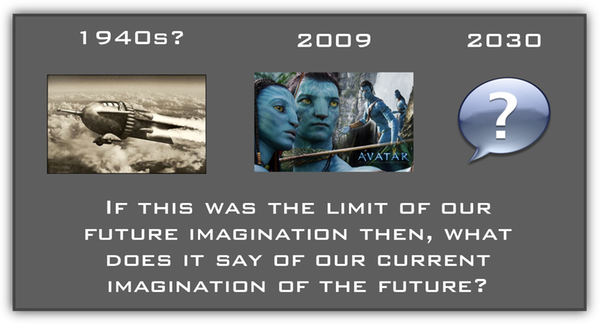
… and at that time, unimagined futureS seemed unthinkable …

So, tomorrowS aren’t going to be like yesterdayS
What can you do about it?
To do something intelligent you need an action system
that you’ve pre-thought and tested against a changing world. David Allen’s GTD
focuses on the wrong things …
Part of that system rests on an evolving world-view ↓
Landmarks of Tomorrow
… it conveys to the reader both the shock of recognition—
how obvious the unfamiliar new already is; and
the shock of estrangement—how irrelevant
the familiar modern of yesterday has already become …
![]()
From Analysis to Perception — the New World View
(HERE !!!)
“Increasingly, therefore, the question of the right size for a task
will become a central one.
Is this task best done by a bee, a hummingbird, a mouse, a deer, or an elephant?
All of them are needed, but each for a different task and in a different ecology.
The right size will increasingly be whatever handles most effectively
the information needed for task and function.
Where the traditional organization was held together by
command and control, the “skeleton” of the information-based organization
will be the optimal information system”
(he isn’t talking about computer systems)
… “This means a radical change in structure for the organizations of tomorrow.
It means that the big business, the government agency, the large hospital, the large university
will not necessarily be the one that employs a great many people.
It will be the one that has substantial revenues and substantial results
—achieved in large part because it itself does only work
that is focused on its mission;
work that is directly related to its results;
work that it recognizes, values, and rewards appropriately.
The rest it contracts out.”
